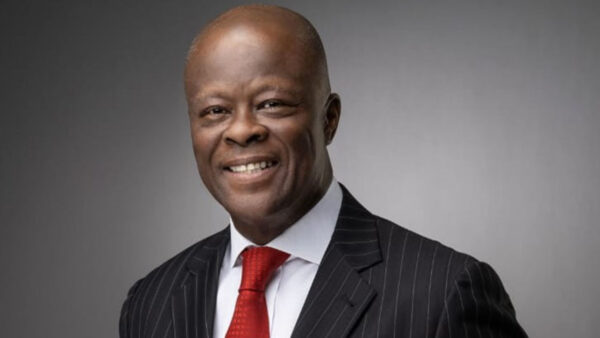The Minister of Finance and Coordinating Minister of the Economy, Wale Edun, says Nigeria’s economy is witnessing a remarkable turnaround following key reforms by the Bola Tinubu administration, including the liberalisation of the forex market and the elimination of unproductive economic practices.
Speaking during the second quarter 2025 Citizens and Stakeholders’ Engagement Session on fiscal performance and reform outlook, Edun revealed that the Federal Government generated N6.9 trillion in revenue between January and April 2025 — a 40 percent rise from N5.2 trillion recorded during the same period in 2024.
He attributed the surge in revenue to a series of reforms, including the unification of foreign exchange rates, renewed fiscal discipline, and the deployment of technology to close leakages across Ministries, Departments and Agencies (MDAs). According to Edun, these measures have restored credibility to Nigeria’s financial system, enhanced transparency, and reduced arbitrage that previously fuelled the black market.
“With the central bank’s market-driven monetary policy and foreign exchange pricing, we’ve essentially eliminated the dollar black market,” Edun said. “The large premiums between the official and parallel markets that encouraged rent-seeking and discouraged investment have been addressed.”
He explained that under the old system, individuals could profit by accessing forex at the official rate and selling it on the black market at a premium. That gap, which distorted the economy and discouraged productive activity, has now significantly closed.
Edun outlined the administration’s phased reform strategy — starting with the removal of pricing distortions in petrol and forex, followed by macroeconomic stabilization, and now a focus on inclusive, sustained growth. He pointed to increased investor confidence, citing a $5.5 billion oil investment by Shell as a sign that global firms still see value in Nigeria’s economy.
He also announced that Nigeria’s external reserves have grown from $3 billion to over $23 billion in less than two years, largely due to better forex management and rising revenues. Annual government revenue, he said, jumped from N12.5 trillion in 2023 to over N20 trillion in 2024, with the momentum continuing into 2025.
Edun noted that this revenue boom has improved Nigeria’s debt sustainability. The debt service-to-revenue ratio, which stood at 150 percent in the first quarter of 2023, dropped to around 60 percent by the end of 2024. He said this was driven by rising revenue and reduced reliance on Central Bank Ways and Means advances, which had previously undermined fiscal discipline.
The minister added that international credit rating agencies like Fitch and Moody’s have upgraded Nigeria’s sovereign ratings in response to the reforms, easing borrowing costs and further stabilising the economy.
While oil revenues remain below expectations due to low production and global price swings, Edun said efforts are underway to boost output. He highlighted structural shifts, such as the development of 1.2 million barrels-per-day domestic refining capacity, led by Dangote Refinery and modular plants, which will reduce Nigeria’s reliance on crude exports and promote value-added manufacturing.
Beyond macroeconomic stability, Edun said the reforms are also improving the lives of everyday Nigerians. He mentioned ongoing grants and low-interest loans for small businesses, new mortgage products with sub-10 percent interest rates for up to 25 years, and expanded access to healthcare — now reaching 37 million citizens through revitalised primary health centres.
In addition, 400,000 young Nigerians, including members of the National Youth Service Corps (NYSC), are being targeted under a new consumer credit initiative, with loan packages ranging from N200,000 to N300,000.
The minister also highlighted a 40 percent increase in electricity output, the implementation of the Band A tariff structure, a major metering initiative, and a growing emphasis on renewable energy. He noted Nigeria’s participation in the World Bank and African Development Bank’s Mission 300 project, which aims to bring power to 300 million Africans by 2030.
Representing the Managing Director of the Ministry of Finance Incorporated (MoFI), Tajudeen Ahmed, the agency’s executive director, disclosed that the government has identified N38 trillion worth of publicly owned assets, with plans to raise this figure to N70 trillion by 2026 and scale up to N100 trillion within the next decade. He said these assets will serve as leverage for driving investment and ensuring public transparency.










